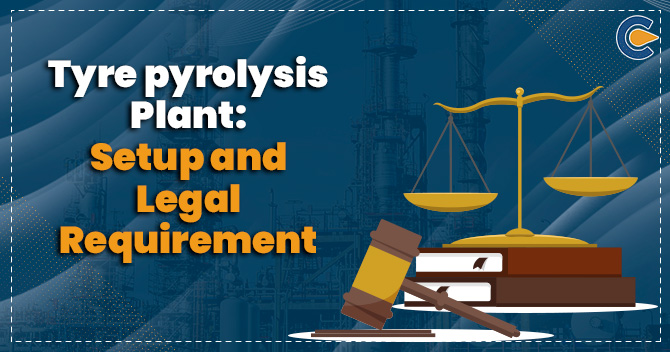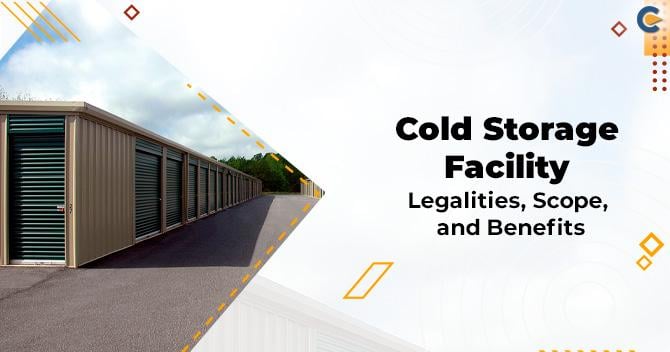A tyre pyrolysis plant is a setup that is used to process used or old tires and convert them into productive end-products such as Steel wire, carbon black, and pyrolysis oil. The demand for these products is increasing and is likely to thrive even further in the coming years. A tyre pyrolysis plant serves as a viable business option for those looking a start a low-cost and sustainable business. Presently, more than 600 Tyre pyrolysis Plants are operational in India. This write-up aims to explore the setup and legal requirements around the Tyre pyrolysis Plants.
Pros for opening Tyre Pyrolysis Plant in India
- Low set up cost[1]
- High demand for end-products of waste tyres
- Low operational cost as compared to other production facilities
- Sustainable and high-profit reaping business
Types of Tyre Pyrolysis Plant
Following are the common types of tyre pyrolysis plants found in India in the status quo. One can choose them in accordance with the cost, compliance threshold, and size of the premises.
Continuous waste tyre pyrolysis plant
It is a closed-loop setup where the waste tyres are directly fed into the furnace and processed till the production of end products. Such a plant can remain operational for weeks and even months without stopping. Also, such plants are considered eco-friendly due to their close-knit arrangement.
Batch waste pyrolysis plant
As the name suggests, the Batch waste pyrolysis plant deals with the batch-wise treatment of tyre wastes. It is less eco-friendly and prone to higher overhead costs. Through, the production quality of such a plant is on the higher side.
Unlike Continuous waste tyre pyrolysis plant, the raw material, i.e. waste tyres, is not directly fed to the furnace or boiler for processing. Instead, they are pre-processed via shredding and turned into a 10 Mesh powder before subjecting the heating process.
End-products of Tyre Pyrolysis Plant
Following are some common end products that can be extracted from the tyre pyrolysis process;
Pyrolysis oil
It is primarily referred to as fuel oil utilized in various industries such as steel, cement, boiler factories etc. It is commonly popularized as a diesel alternative. Pyrolysis oil has an optimal calorific value of around 13000, ideal for running a boiler or furnace.
The ever-increasing diesel price makes pyrolysis oil a better alternative for several industries equipped with furnaces.
Carbon black
Carbon black is primarily utilized to make the tire’s structure robust. Besides, it can be used as a pigment, conductive or insulating agent in various types of plastic, rubber, and coating applications.
Steel wire
Steel wire recovered from the used tire can be used for various purposes. Also, it can be reprocessed and turned into valuable products.
Licenses and permits required for establishing a Tyre Pyrolysis plant in India
Following is the list of mandatory certifications and licenses that one needs to secure for setting up the Tyre Pyrolysis plant;
Business registration
Business registration or incorporation certificate is vital for any kind of business setup, including production or recycling units. One can file an application with the Ministry of Corporate Affairs, i.e. MCA for obtaining an incorporation certificate against one of the following business structures;
- LLP, i.e. Limited Liability Partnership
- Private limited company
- One Person company
Applicants also have option to register under the Partnership Act, 1932. However, it is only viable for those who intend to run a business through one or more partners.
Factory license
The application for the factory license can be filed with the labour department of the respective state. The common documents required for obtaining a factory license include plant schematic, detail of proposed location, land ownership or lease proof, detail about machinery and equipment, type of proposed products, manufacturing process flow chart, sanctioned load of electricity, and so on and so forth.
Authorization under Hazardous waste management from MoEE
Authorization under Hazardous management plant is a mandate for tyre recyclers and processors in India. One can obtain this consent by applying form 1 with the respective State pollution control board.
NOC from SPCC
The state pollution control board grants NOC in two phases, known as primary and secondary approval. The second approval shall serve as the final approval, but it will only come into effect once the applicant successfully meets the conditions of the first consent.
Post-grant of initial approval, the applicant must abide by certain provisions and install the pollution control devices within the facility in a prescribed timeframe.
Fire NOC
Tyre production, recycling, and processing are prone to fire-related accidents. Thus, such facilities must obtain Fire NOC from the respective fire department. After receiving the application, the said department inspects the concerned facility for the availability of fire safety devices.
Conclusion
The investment required for setting up a Tyre pyrolysis Plant is not as significant as other operating units. The operational cost is not on the higher side either. However, the legalities and compliance requirements of such plants are not that simple.
Read our Article:Tyre Retreading Business: A Perfect Ventures for Startups











